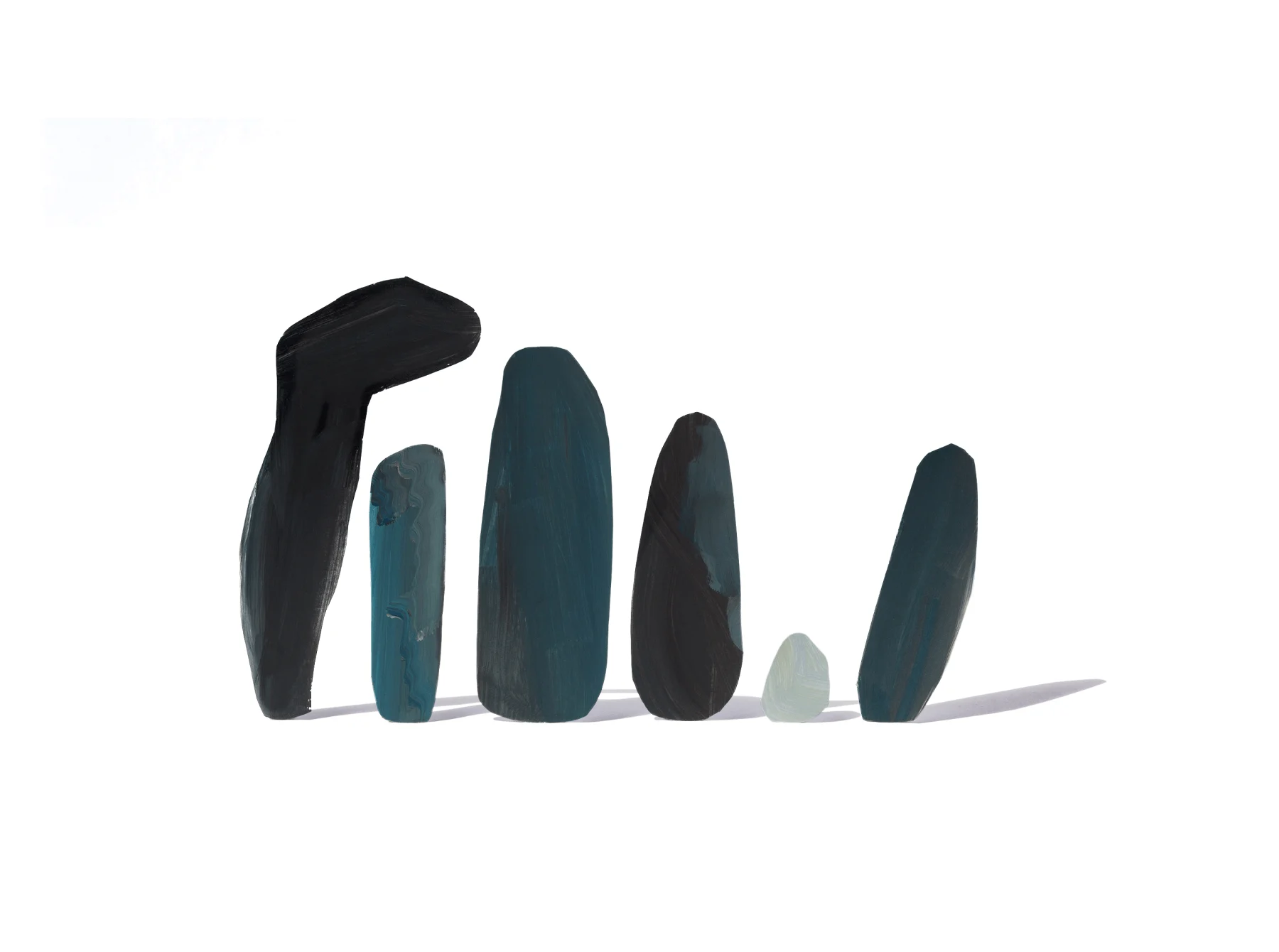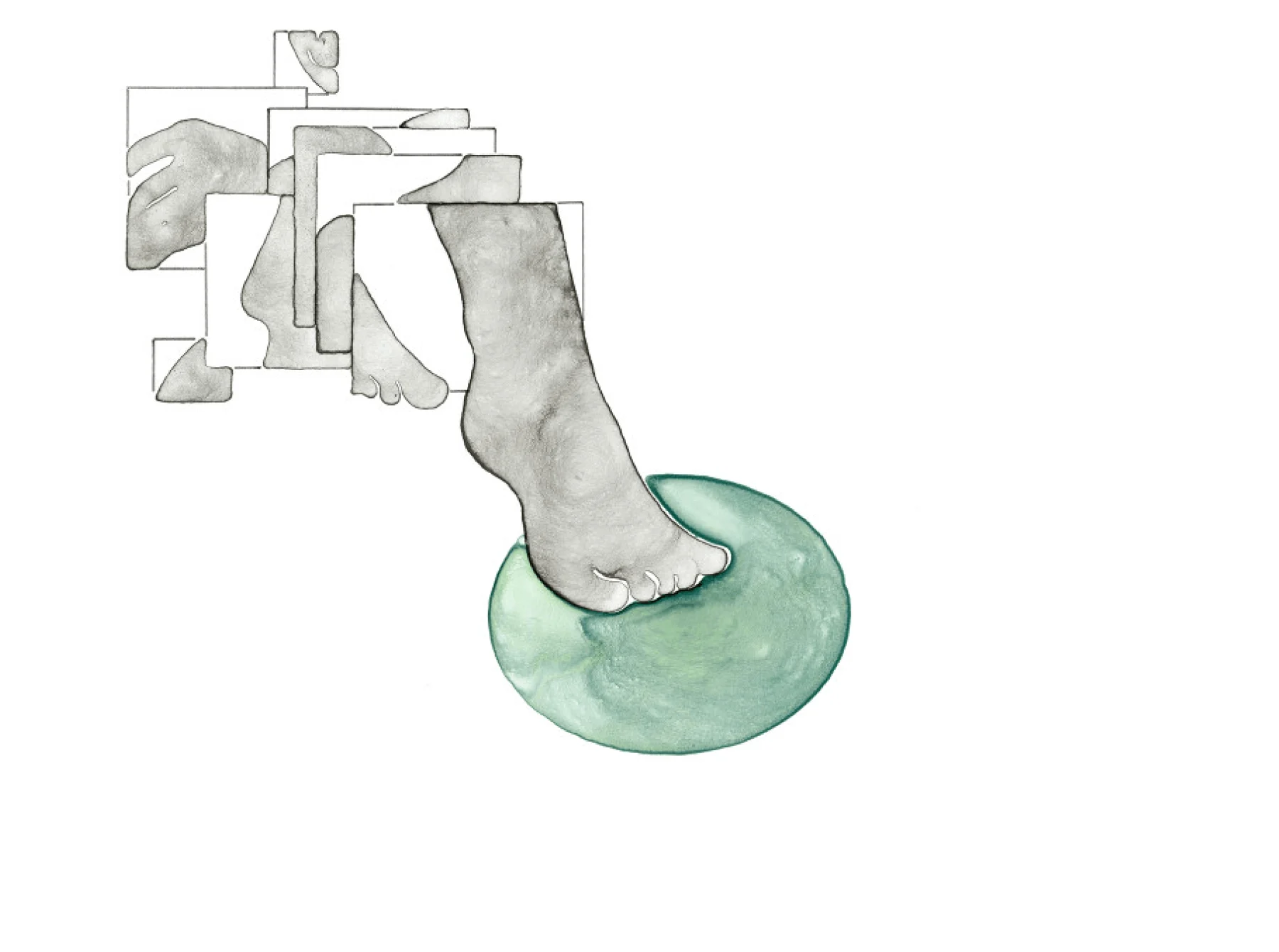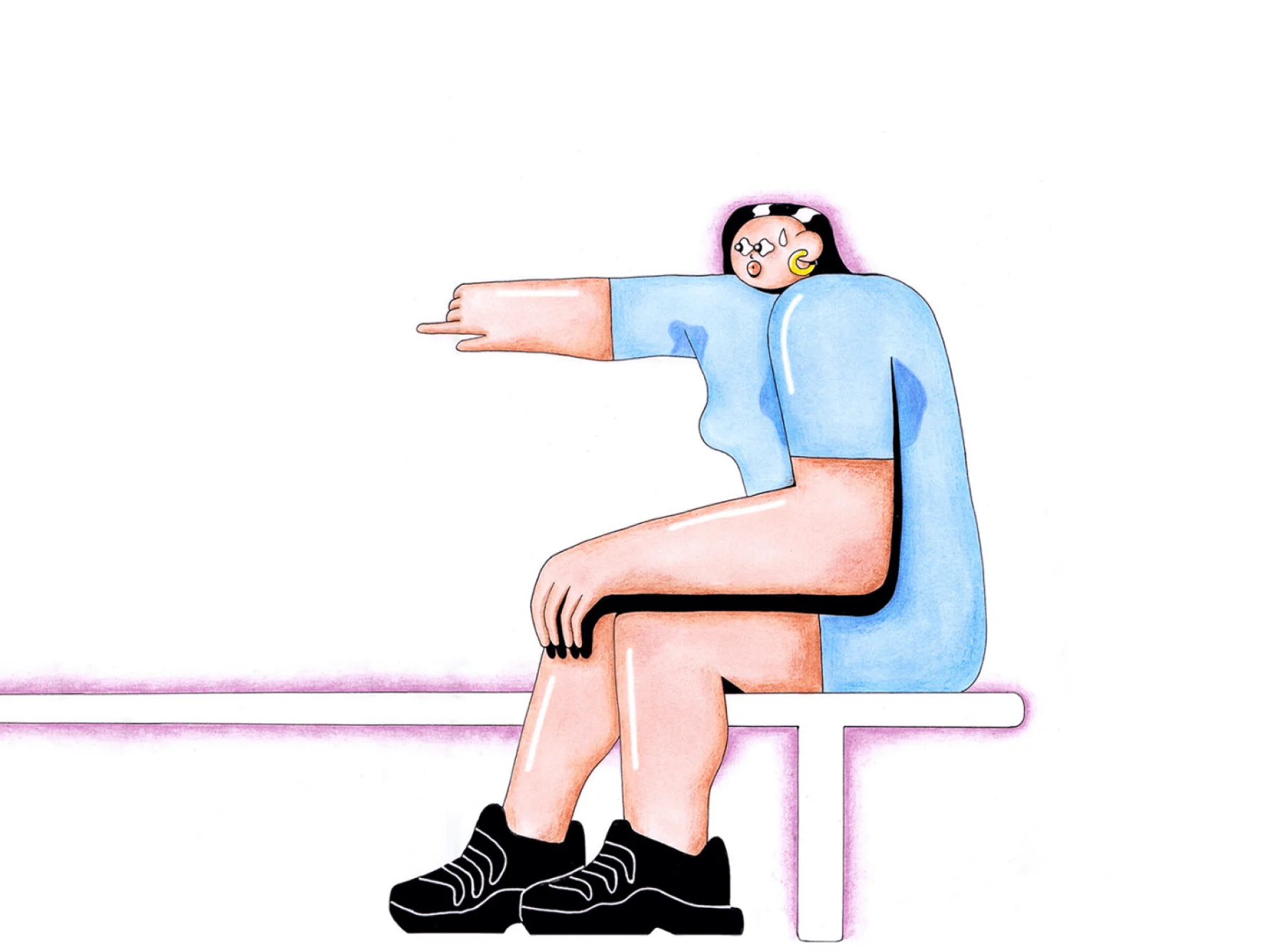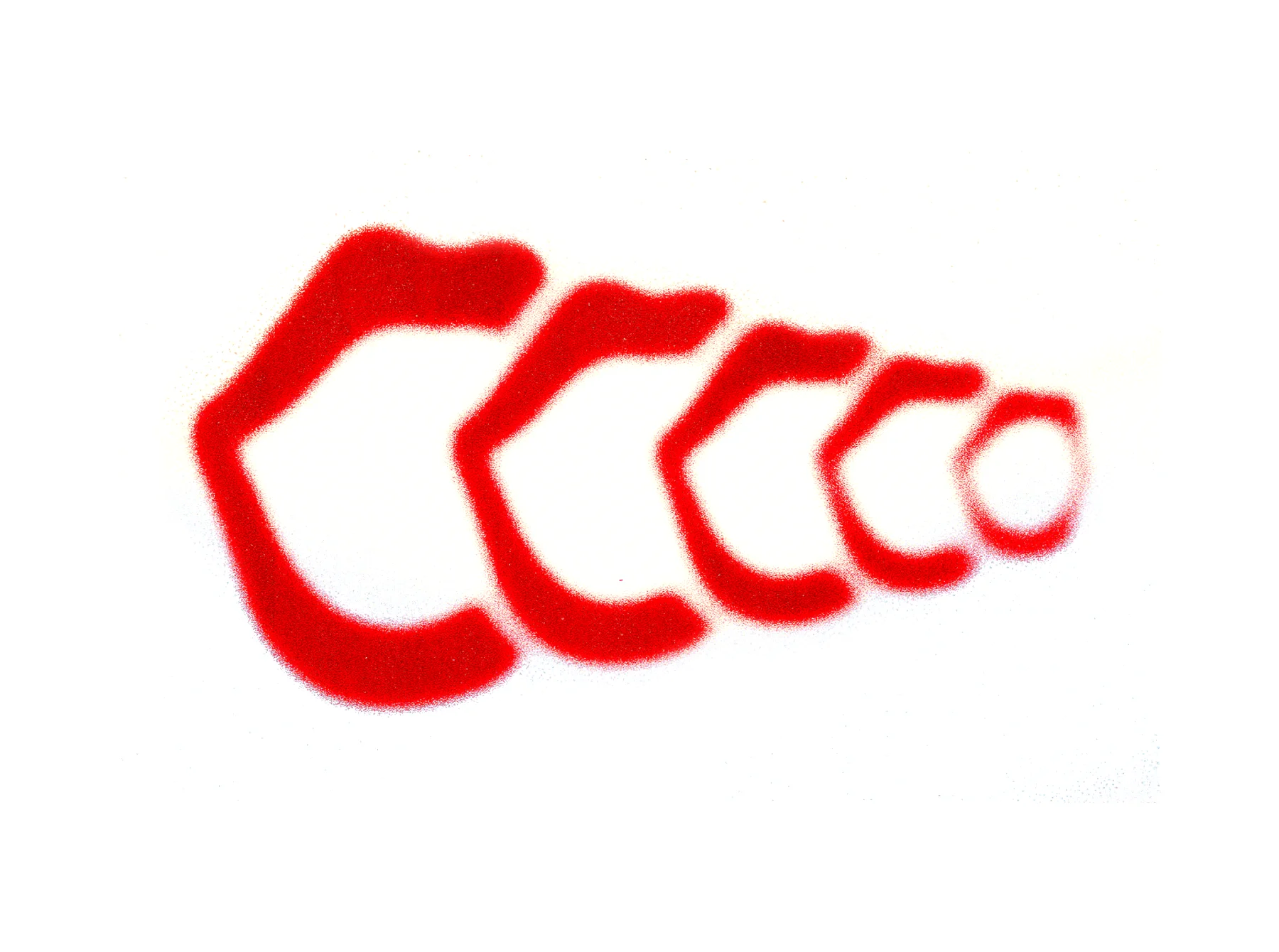

When you first start out in the creative industries, there is a lot of received wisdom. "This is how it works." "That’s just the way it is." But how true are these truisms? We partnered up with Lecture in Progress to look at six myths you often hear when it comes to creative careers and find out how true, if at all, they really are.
Illustrations by Jason Mars.
Myth 4: Making good money means selling out creatively
When Surrealist painter Salvador Dalí died in 1989, his estate was worth a whopping $87million. Dalí was a world-class artist, a household name and – in the minds of many – a complete sell-out . He designed the logo for lollipop brand Chupa Chups. He created the publicity material and stage for the 1969 Eurovision Song Contest. He starred in ads for everything from chocolates and chewing gum to airlines and Alka Seltzer. He even once sold a blade of grass to Yoko Ono for $10,000. His artistic reputation amongst his contemporaries took a bit of a hit, but so what? Selling out paid off.
Making a break with tradition
The past has taught us that selling out is something to be frowned upon. It’s a judgemental claim we’ve seen laid at the feet of bands like Metallica who switched up their sound to appeal to mass audiences. Or the likes of rockstar Iggy Pop who appeared in commercials for car insurance. It’s traditionally something people who had previously ‘made it’ do as their popularity dries up and/or they’re left strapped for cash.
2019, however, is a whole other world. Welcome to generation sell-out. In an age of influencers, sponsored content, paid posts and Teen Boss Magazine, we’re all encouraged to monetize our hobbies and turn our side hustles into businesses. At a time when almost anything is and can be sold, you could say that this generation is “selling out” as a way to make it in the first place.
Artistic authenticity might have been problematic for the baby boomer generation, but for millennials? Nah, they’re totally cool with it . Working with a big-name brand is no longer a deal with the devil, no longer anything to be ashamed of.

What choice do millennials have?
It’s not just that selling out has had an image change though. With global standards of living and working putting all kinds of pressures on creatives, do millennials really have another choice? Accepting any kind of creative (or non-creative) payoff can sometimes be a necessity.
Does this does mean you should do a Dalí and say yes to everything that comes your way? Probably not, but it does mean having to ask yourself where your priorities lie. You need to know how you want to market yourself, and how you want to make money.
Renting, not selling, out
“I’m not that interested in working for clients, but I have to do it because I have rent to pay. I have to support myself.” French illustrator Mcbess (aka Matthieu Bessudo), is more of a purist than most, but at least he’s practical about it. Working commercially is simply part of his working calendar; it offers him a semi-regular paycheck, and buys him time to create more of the personal work he really cares about.
Mcbess has found a way to sell out, so to speak, on his own terms. He doesn’t budge on his signature monochrome style, and only works for brands he likes, or for products he uses. And unless he’s contractually obliged, he won’t post any commercial work on social media. He is, however, transparent about all this. “If you come to a talk, I will discuss the commercial side of what I do. I don’t want people to think that it’s magic,” he explains, “I just don’t want it to be part of the mood I create.”
When you think about it, this is less a case of selling our creative talents, and more like renting. It’s about knowing where you stand, and outlining an agreement as to what you are and are not willing to compromise on.

What makes money ‘good’?
“We used to say ‘would you feel embarrassed telling your friends down the pub that you were working with this brand?,” says creative director Tom Tapper. In 2008, Tom co-founded London-based ethical creative agency, Nice and Serious, with friend Ben Meaker. “We were able to exist for several years with very little income,” he explains, “Because we didn’t sell out in those early days, and remained focused on doing cause-related work, we ended up having a really pointed portfolio that spoke volumes about what we stood for as an agency.”
Today, the duo filter all potential briefs through their moral compass – using a web app they devised to democratize the decision-making process. It means their team gets to vote on what they work on. They are proof that you can make a living doing work you believe in.
It’s time to stop judging
“A lot of people give designers a hard time,” says New-York based creative Carly Ayres. “I think it’s asking a lot to expect those we put on pedestals to make work free from capitalism. Morals aside, for a lot of people, selling out allows them to pay off their college debt, or get out of a hole.” This is something else that money can buy you – financial freedom to start over, or savings for a rainy day.
Previously one of the co-founders of creative studio, HAWRAF, Carly and the team decided to close the studio in March 2019. She admits that when it came to the choice between making good work or good money, “it usually a pull between the two.” The studio even created a flow chart to help them work out whether a project was worth taking on. But when it came to talking about ways to scale up the studio, they decided they’d end up having to compromise more of their morals. They didn’t want to, so they closed.

Do the moral maths
Today, Dalí would have been considered a master influencer. In his pursuit of fame and fortune, the only thing he wasn’t willing to endorse was the tired image of the starving, isolated artist. He knew that you couldn’t live on creativity alone, and this still rings true today.
In a commercial world, making a living often means being at the mercy of a boss, a client or a brief. So if selling out – in whichever form that takes – means you can pay your rent, maintain a good quality of life and continue to make work you really believe in, it’s a decision worth taking seriously.
However, before you land on that choice, you might want to do your research. Because knowing the price that you yourself are willing to pay in exchange for your creativity, is just as valuable as any paycheck.



